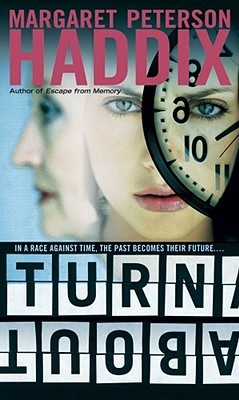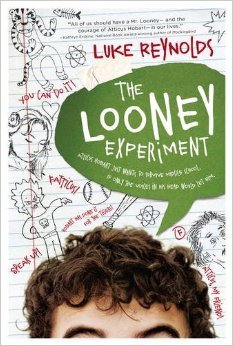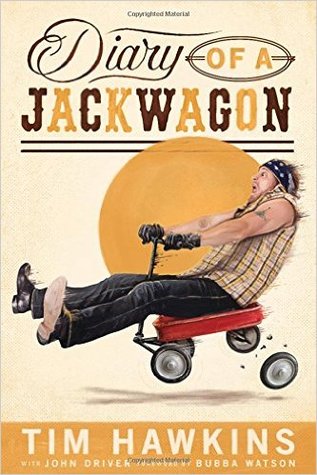 |
| Click to view on Goodreads |
Spirited, restless Gracie Lockwood has lived in Cliffden, Maine, her whole life. She’s a typical girl in an atypical world: one where sasquatches helped to win the Civil War, where dragons glide over Route 1 on their way south for the winter (sometimes burning down a T.J. Maxx or an Applebee’s along the way), where giants hide in caves near LA and mermaids hunt along the beaches, and where Dark Clouds come for people when they die.
To Gracie it’s all pretty ho-hum…until a Cloud comes looking for her little brother Sam, turning her small-town life upside down. Determined to protect Sam against all odds, her parents pack the family into a used Winnebago and set out on an epic search for a safe place that most people say doesn’t exist: The Extraordinary World. It’s rumored to lie at the ends of the earth, and no one has ever made it there and lived to tell the tale. To reach it, the Lockwoods will have to learn to believe in each other—and to trust that the world holds more possibilities than they’ve ever imagined.
(432 pages; released November 3)
When I requested My Diary from the Edge of the World, I thought it would be a fun, fluffy fantasy I could devour in a few hours. I expected to love it (because, seriously - inverted normality! Dragon migration! Sasquatches participating in the Civil War!), and I did. It was just as fun and enchanting as I'd hoped, but it was a little more than I'd reckoned on as well. It was, in a nutshell, a beautiful, thought-provoking tale of love and family and forgiveness and death, tied together with enough humor and adventure to keep the most fitful reader interested.
Gracie's voice comes through so authentically, so perfectly, that I could completely believe that she really was just writing down her experiences in her diary. She reminded of myself at a younger age, and some of her emotions and experiences in the beginning of the book echoed similar ones in my own life (including a short stint with an injured arm - I wish my wrist injury would heal as quickly!). As I continued reading, I actually found myself drawing a lot of parallels between Gracie's family and mine, because the Lockwoods really reminded me of my own family. By the time they left Cliffden, I'd already established in my mind that I was actually Millie (because I think the way Gracie sees Millie is probably a lot like the way my sister sees me), my sister was Gracie, and my youngest brother was Sam. I was invested in the family, and I loved them all. I even loved Gracie's dad from the beginning, though he did annoy me sometimes. My father really is a scientist (like I said, there were a lot of connections to draw between my family and Gracie's), and he's nothing like the socially awkward, completely oblivious Mr. Lockwood. I get very tired of seeing the scientist always being portrayed as this strange creature so divorced from the emotions of the people around him. It's a rather gentle stereotype in the grand scheme of things, but it still does get grating after a while.
Sorry, short rant over. Going back to the characters, it was my close connection to the Lockwood family that made the ending have that much more of an impact for me. And I'm sorry I can't delve into that more, but I don't want to spoil anything for you. On one hand it's a beautiful, meaningful, perfect ending to a wonderful book that I connected with on a deeper level. On the other hand, I kind of (no, not kind of - really!) wish the ending had been different. And that's all I can say about it.
The ending is only the last twenty pages, though, and this is a 430 page book. When I'm absolutely in love with 410 pages of a book, I have a hard time saying I dislike it just because the last five percent isn't what I'd hoped it would be. I loved watching Gracie and her family experience the wonders of their world, coming to appreciate that it's not quite as hum-drum as they always thought of it as being. Later in the book Gracie makes some really poignant remarks about the people who live in the Extraordinary World (i.e. our world) - about how their surroundings are so amazing, but they are desensitized from it. Hearing that from the girl who thinks Sasquatches are ordinary makes it that much more meaningful, you know?
Do I recommend My Diary From the Edge of the World? I think so, yes. It's such a great story, I have a terrible time turning people off of it. Just be warned that the ending isn't quite as light and fluffy as you might think, and that religion gets just as messed around with as myths and legends do. I feel uncomfortable/unhappy with some parts of the book, but they're so incredible overshadowed by the amazing writing and incredible poignancy of the rest of the story that I still love it. My Diary from the Edge of the World is, regardless of all else, a very beautiful book, and I'm very glad I read it.
Sorry, short rant over. Going back to the characters, it was my close connection to the Lockwood family that made the ending have that much more of an impact for me. And I'm sorry I can't delve into that more, but I don't want to spoil anything for you. On one hand it's a beautiful, meaningful, perfect ending to a wonderful book that I connected with on a deeper level. On the other hand, I kind of (no, not kind of - really!) wish the ending had been different. And that's all I can say about it.
The ending is only the last twenty pages, though, and this is a 430 page book. When I'm absolutely in love with 410 pages of a book, I have a hard time saying I dislike it just because the last five percent isn't what I'd hoped it would be. I loved watching Gracie and her family experience the wonders of their world, coming to appreciate that it's not quite as hum-drum as they always thought of it as being. Later in the book Gracie makes some really poignant remarks about the people who live in the Extraordinary World (i.e. our world) - about how their surroundings are so amazing, but they are desensitized from it. Hearing that from the girl who thinks Sasquatches are ordinary makes it that much more meaningful, you know?
Do I recommend My Diary From the Edge of the World? I think so, yes. It's such a great story, I have a terrible time turning people off of it. Just be warned that the ending isn't quite as light and fluffy as you might think, and that religion gets just as messed around with as myths and legends do. I feel uncomfortable/unhappy with some parts of the book, but they're so incredible overshadowed by the amazing writing and incredible poignancy of the rest of the story that I still love it. My Diary from the Edge of the World is, regardless of all else, a very beautiful book, and I'm very glad I read it.
Disclaimer: I received a complimentary ARC of this book from Simon & Schuster in exchange for an honest review.







